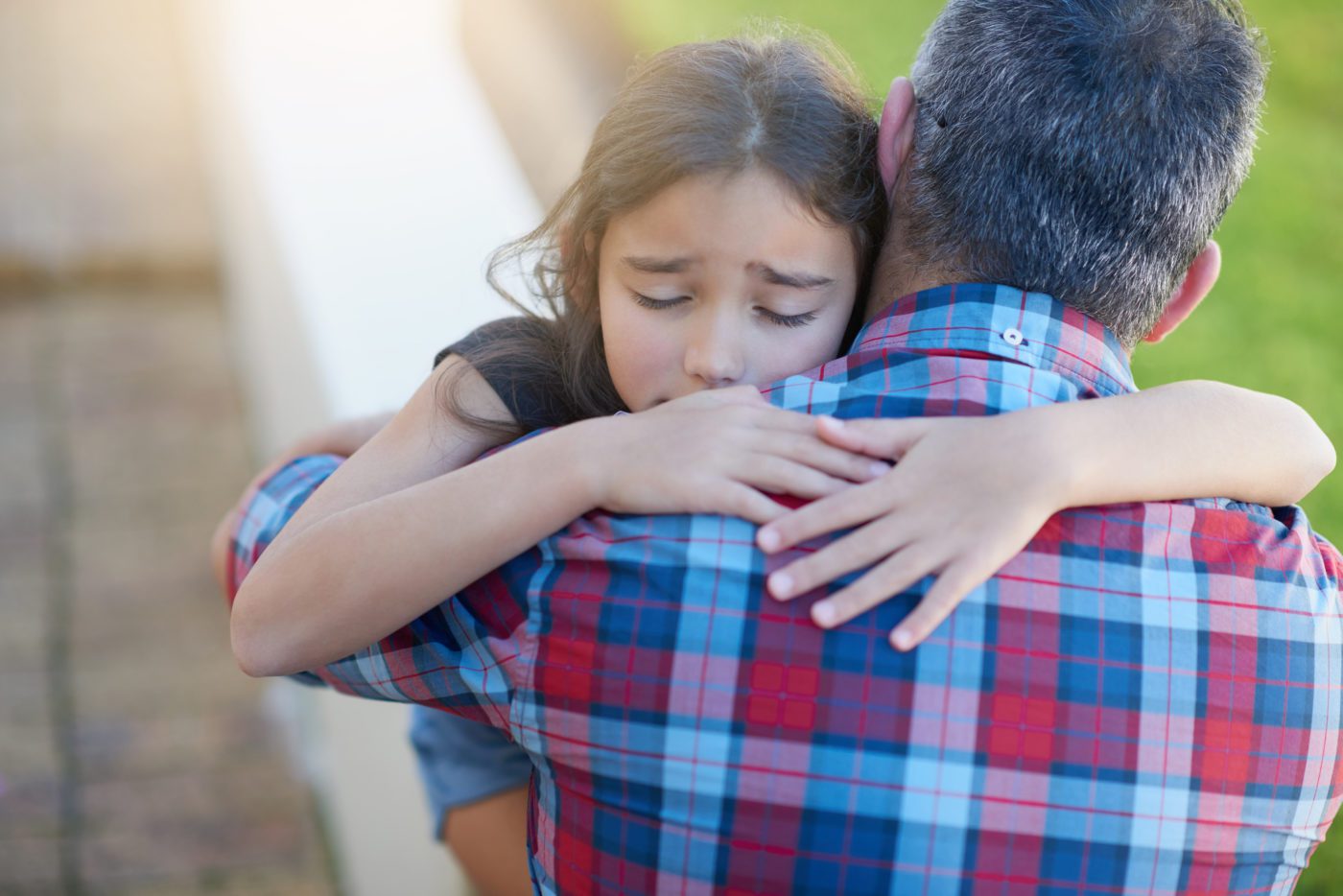With every word I spoke, I felt my son become more distant. He held a lifeless gaze out the window as we drove home. I hated what happened to him and wanted to give him a strategy to use if it ever happened again. I tried to empower him, but it weighed him down with even more shame. He’d been playing at the park with several boys he’d just met. They played well for a while—until they turned on him without warning. They threw insults and excluded him from the group. He tried to stand up for himself, but it was an unwinnable situation. I’d been talking to another dad, and so had missed it all, when my son asked to leave.
In the car, he told me what happened. That’s when I started talking. As he looked away, I realized what I was doing. Not only did being rejected by his peers humiliate him, but then I showed him how weakly he’d handled it. Ashamed, I finally said, “I’m sorry that happened. You didn’t deserve that.” That’s when he looked at me and started crying. I reached into the back seat and put my hand on his knee to comfort him. I never meant to shame him. Unfortunately, there are other subtle things we do as dads that lead to shaming children. Here are 3 of them.
1. We immediately tell them what they should’ve done.
When my kids experience something painful, my instinct is to immediately provide solutions. I want to protect them by giving them wisdom I’ve gained, especially from my failures. There’s a time for that, but not while they’re hurting, or we’ll add unnecessary shame. What they need is someone who understands and hurts with them. Jesus of Nazareth shows us how.
Two sisters named Mary and Martha were friends of Jesus. When their brother, Lazarus, was dying, they sent for Jesus because he had healed people (John 11). When he arrived, Lazarus had died already and the sisters were heartbroken. Jesus knew he would raise their brother from the dead and could have told them everything would be fine. Instead, he felt their pain and wept with them. Sometimes our kids need the same from us.
2. We lack understanding and grace when they get it wrong.
It amazes me how mad I get when my kids behave recklessly, make mistakes, or disobey. I somehow think they shouldn’t make the boneheaded moves I made at their ages. So I come down on them hard, lecturing them about their errors. Jesus gives us a better model.
One day, Jesus was teaching when religious leaders brought a woman caught in adultery. They wanted to stone her to death—an appropriate punishment according to the law—and wondered what Jesus thought about that. Imagine the woman’s shame and fear as everyone waited for Jesus’ response. Instead of speaking, he wrote in the dirt. We don’t know what wrote, but all eyes were probably on him, not the woman, perhaps saving her a lot of shame. When the leaders asked again, Jesus gave them permission to stone her—as long as they had not sinned. They all dropped their rocks and left. Jesus turned to the woman and showed her grace. Our kids need to be straightened out when they get out of line, but they’re young. We can’t expect them to get it right all the time. They need understanding and grace as much as correction.
3. We use “You are…” when they do something wrong.
Our kids’ identities shouldn’t be connected to what they do. If we define kids by accomplishments, they’ll only be as good as their last achievement. And if we define kids by failures, it brings shame. We do it when we use the phrase “You are…” and connect it with something negative. When they do something unwise, “You’re an idiot.” When they leave a mess, “You’re a slob.” When they fall short or disobey, “You’re a disappointment.” But mistakes are things they did, not who they are. Again, Jesus shows a better way.
In Jesus’ day, tax collectors overcharged people to enrich themselves. They were considered the worst. But Jesus defined them differently. He even visited one tax collector, Zacchaeus, at his house (Luke 19). He never condemned or shamed Zacchaeus. He spent time with him and showed compassion. Because of that, Zacchaeus promised to give half his possessions away and give back four times the amount of money he had cheated from people. I’m not saying we shouldn’t call out and correct bad behavior. But make sure you condemn the behavior, not the person.
Colossians 1:15 says Jesus is the visible image of God the Father. If that’s true, how he treats people shows that God is a father full of compassion, grace, patience, and wisdom. He gives us a great example of how to handle these situations as dads—and a perfect model to follow.
Sound off: What other ways do we shame our kids and what could we do differently?












Huddle up with your kids and ask, “Are there things I’ve said to you that have made you feel bad?”